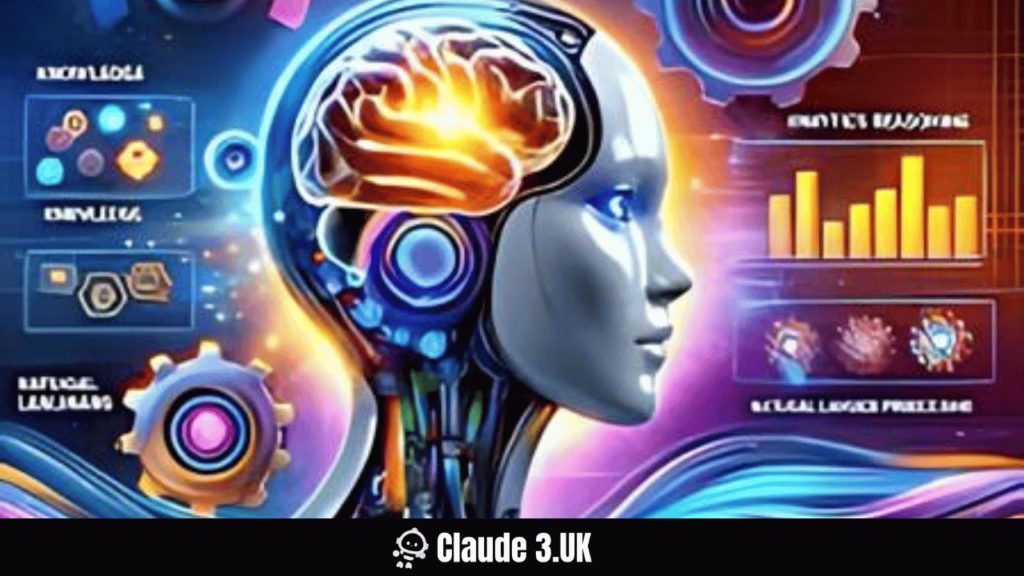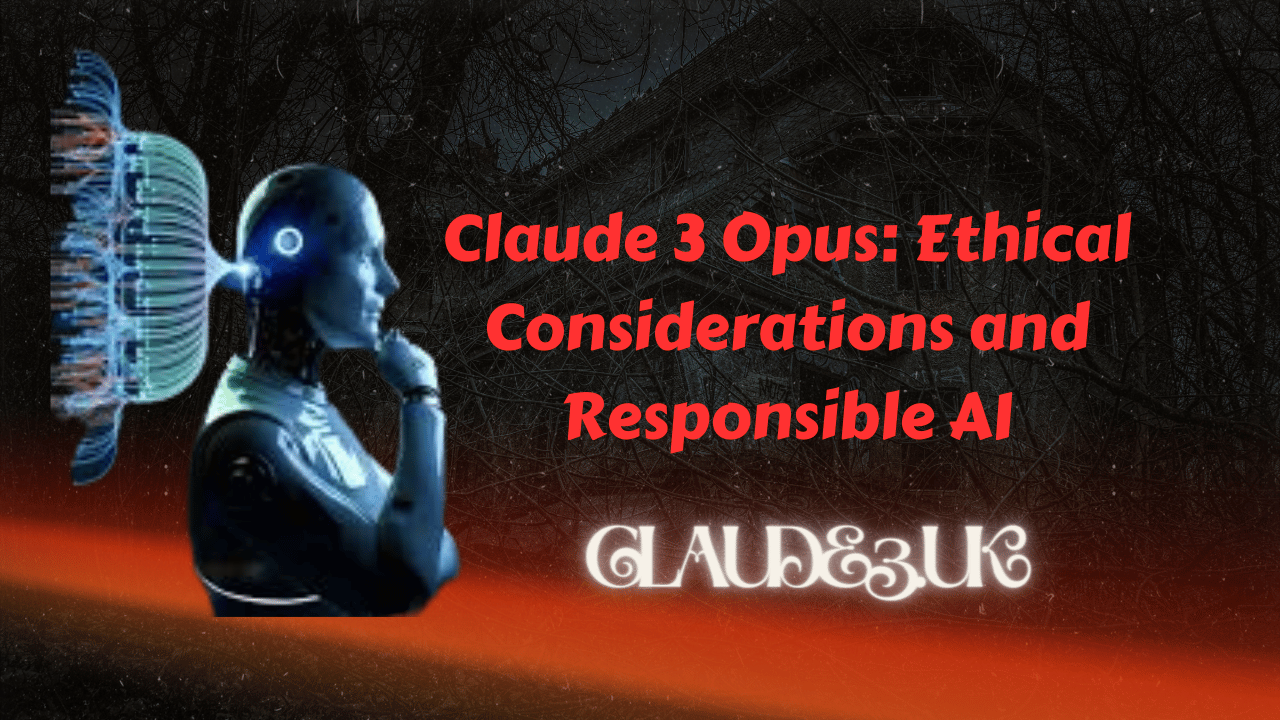Artificial Intelligence (AI) has seen remarkable advancements over the past decade, with models like Claude 3 by Anthropic leading the charge.
Claude 3, a state-of-the-art AI model, is designed to mimic human communication with unprecedented accuracy. While its capabilities offer numerous benefits across various sectors, they also raise significant ethical questions.
This article delves into these ethical considerations, addressing issues such as bias, transparency, accountability, privacy, and the broader societal impact.
Understanding Claude 3
Development and Capabilities
Claude 3 is built on advanced machine learning frameworks, leveraging large datasets and sophisticated algorithms to perform natural language understanding (NLU) and generation (NLG). Its architecture likely incorporates transformers, which enable it to process and generate text that is coherent, contextually relevant, and human-like in quality.
Key Features
- Natural Language Understanding (NLU): Exceptional ability to comprehend and respond to complex human queries.
- Contextual Awareness: Maintains context over extended interactions, making conversations more fluid and natural.
- Learning Efficiency: Utilizes improved learning algorithms to achieve high performance with relatively smaller datasets.
Ethical Considerations
Bias and Fairness
One of the foremost ethical concerns with AI models like Claude 3 is bias. AI systems can inadvertently learn and propagate biases present in the training data.
- Sources of Bias: Training data may reflect societal biases, leading to biased outputs.
- Impact of Bias: Biased AI can perpetuate stereotypes, unfairly disadvantage certain groups, and amplify social inequalities.
- Mitigation Strategies: Employing diverse and representative datasets, implementing bias detection and correction mechanisms, and continuously monitoring AI outputs for biased behavior.
Transparency and Explainability
Transparency in AI systems is crucial for building trust and ensuring accountability.
- Challenges: Complex models like Claude 3 are often seen as “black boxes,” making it difficult to understand their decision-making processes.
- Importance of Explainability: Users need to understand how AI arrives at specific conclusions, especially in critical applications such as healthcare, finance, and legal systems.
- Approaches to Enhance Transparency: Developing interpretable models, providing clear documentation, and employing tools that explain AI decisions in human-understandable terms.
Accountability and Responsibility
Determining accountability for AI actions is a complex issue that involves multiple stakeholders.
- Accountability Frameworks: Establishing clear lines of responsibility among developers, deployers, and users of AI systems.
- Ethical Design Practices: Incorporating ethical considerations into the design and development phases, ensuring that AI is used responsibly and aligns with societal values.
- Regulatory Compliance: Adhering to legal standards and guidelines that govern AI development and use, such as GDPR for data protection.
Privacy and Data Security
AI models like Claude 3 rely on vast amounts of data, raising significant privacy and security concerns.
- Data Collection: Ethical concerns around the collection, storage, and usage of personal data.
- Data Anonymization: Implementing techniques to anonymize data and protect individual privacy.
- Security Measures: Ensuring robust security protocols to protect data from breaches and unauthorized access.
Societal Impact
The deployment of advanced AI systems can have profound implications for society.
- Economic Displacement: Automation of jobs may lead to unemployment and economic displacement for certain sectors.
- Digital Divide: Ensuring equitable access to AI technologies to prevent widening the digital divide.
- Social Implications: Considering the broader social impact of AI, such as its influence on human behavior, interaction, and decision-making.
Principles of Responsible AI
Fairness and Non-Discrimination
Ensuring that AI systems treat all users fairly and do not discriminate based on race, gender, age, or other characteristics.
- Inclusive Design: Incorporating diverse perspectives in the design and development of AI systems.
- Bias Audits: Regularly conducting audits to detect and mitigate biases in AI models.
Transparency and Openness
Promoting transparency in AI development and operations to foster trust and accountability.
- Open Research: Sharing research findings and methodologies openly to allow for independent verification and scrutiny.
- Transparent Operations: Providing users with clear information about how AI systems work and their limitations.
Accountability and Governance
Establishing robust governance structures to ensure responsible AI deployment.
- Ethical Committees: Forming committees to oversee AI ethics and governance.
- Regulatory Compliance: Ensuring AI systems comply with relevant laws and regulations.
- Incident Management: Developing protocols for handling incidents involving AI misuse or failures.
Privacy and Security
Prioritizing the protection of user data and ensuring the security of AI systems.
- Data Minimization: Collecting only the data necessary for the intended purpose.
- Encryption: Using encryption to protect data both in transit and at rest.
- Security Audits: Conducting regular security audits to identify and address vulnerabilities.
Human-Centric Design
Focusing on the human impact of AI systems and ensuring they augment rather than replace human capabilities.
- User-Centered Design: Involving users in the design process to ensure AI systems meet their needs and preferences.
- Empowerment: Using AI to empower users and enhance their abilities rather than replace them.
Implementing Responsible AI Practices
Ethical AI Development Lifecycle
Integrating ethical considerations throughout the AI development lifecycle.
- Planning: Identifying potential ethical issues and incorporating them into project plans.
- Design: Ensuring the design aligns with ethical principles such as fairness, transparency, and accountability.
- Development: Implementing ethical design practices and conducting regular audits.
- Deployment: Monitoring the AI system in real-world conditions to ensure it operates ethically.
- Review: Continuously reviewing and improving the AI system to address any ethical issues that arise.
Stakeholder Engagement
Engaging with various stakeholders, including users, developers, regulators, and civil society, to ensure a holistic approach to responsible AI.
- User Feedback: Collecting and incorporating feedback from users to improve AI systems.
- Regulatory Consultation: Engaging with regulators to ensure compliance and stay informed about new regulations.
- Public Dialogue: Participating in public discussions about AI ethics to contribute to societal understanding and consensus.
Ethical Training and Awareness
Educating AI developers and users about ethical considerations and responsible practices.
- Training Programs: Offering training programs on AI ethics for developers and stakeholders.
- Awareness Campaigns: Running awareness campaigns to inform the public about the ethical use of AI.
Continuous Monitoring and Evaluation
Implementing mechanisms for continuous monitoring and evaluation of AI systems to ensure they remain ethical and responsible.
- Performance Monitoring: Regularly monitoring the performance of AI systems to detect and address any issues.
- Ethical Audits: Conducting periodic ethical audits to ensure compliance with ethical principles.
- User Feedback Loops: Establishing feedback loops to continuously gather and respond to user concerns.

Case Studies and Applications
Healthcare
AI has the potential to revolutionize healthcare, but ethical considerations are paramount.
- Bias in Medical AI: Ensuring AI systems used in healthcare do not perpetuate biases that could affect patient outcomes.
- Transparency in Diagnosis: Making AI-driven diagnostic tools transparent to healthcare providers and patients.
- Privacy in Patient Data: Protecting the privacy and security of patient data used by AI systems.
Finance
In the financial sector, AI can enhance efficiency but must be used responsibly.
- Fair Lending Practices: Ensuring AI systems used in lending do not discriminate against certain groups.
- Transparency in Algorithms: Providing transparency in how financial decisions are made by AI.
- Security in Transactions: Ensuring the security of financial data and transactions handled by AI systems.
Legal and Judicial Systems
AI in legal and judicial systems must be fair and accountable.
- Bias in Judicial AI: Ensuring AI systems used in legal decisions do not perpetuate biases.
- Transparency in Legal Decisions: Making AI-driven legal decisions transparent to all parties involved.
- Accountability in AI Judgments: Establishing accountability for AI decisions in legal contexts.
Education
AI can transform education but must be used ethically.
- Fair Access to AI Education Tools: Ensuring equitable access to AI-driven educational tools.
- Transparency in AI Tutoring: Making AI tutoring systems transparent to students and educators.
- Privacy in Student Data: Protecting the privacy of student data used by AI systems.
Public Sector
AI in the public sector can improve services but must be used responsibly.
- Bias in Public AI Systems: Ensuring AI systems used in public services do not perpetuate biases.
- Transparency in Public Decisions: Making AI-driven public decisions transparent to citizens.
- Accountability in Public AI Use: Establishing accountability for AI systems used in the public sector.
Conclusion
The development and deployment of advanced AI models like Claude 3 bring immense potential but also significant ethical considerations. Ensuring responsible AI involves addressing bias, promoting transparency, ensuring accountability, protecting privacy, and considering the broader societal impact.
By adhering to principles of responsible AI and continuously engaging with stakeholders, we can harness the benefits of AI while mitigating its risks. As AI continues to evolve, maintaining an ethical framework will be crucial for its sustainable and beneficial integration into society.
FAQs
Why are ethical considerations important for Claude 3?
Ethical considerations are crucial for ensuring that AI systems like Claude 3 are developed and used responsibly, minimizing harm and maximizing benefits for society. This includes addressing issues such as bias, transparency, accountability, privacy, and societal impact.
How can bias in AI models like Claude 3 be mitigated?
Bias can be mitigated by using diverse and representative datasets, implementing bias detection and correction mechanisms, and continuously monitoring AI outputs to identify and address biased behavior.
What does transparency in AI mean?
Transparency in AI involves making the workings of AI systems understandable to users and stakeholders. This includes explaining how the AI makes decisions, providing clear documentation, and ensuring that users can trust the system’s outputs.
Who is accountable for AI actions?
Accountability for AI actions involves multiple stakeholders, including developers, deployers, and users. Establishing clear lines of responsibility and adhering to ethical design practices are essential for ensuring accountability.
How can privacy be protected when using AI like Claude 3?
Privacy can be protected by implementing data minimization techniques, anonymizing data, using encryption, and ensuring robust security measures to prevent data breaches and unauthorized access.
What are the societal impacts of deploying AI like Claude 3?
Societal impacts include economic displacement due to job automation, potential widening of the digital divide, and broader social implications such as changes in human behavior and decision-making influenced by AI systems.
What role do stakeholders play in responsible AI?
Stakeholders, including users, developers, regulators, and civil society, play a crucial role in ensuring responsible AI. Their engagement helps to create a holistic approach to AI ethics, ensuring that diverse perspectives are considered and ethical standards are maintained.
Why is continuous monitoring and evaluation important for AI systems?
Continuous monitoring and evaluation are important to ensure that AI systems remain ethical and responsible over time. This involves regularly assessing performance, conducting ethical audits, and responding to user feedback to address any emerging issues.

1 thought on “Claude 3 Opus: Ethical Considerations and Responsible AI”